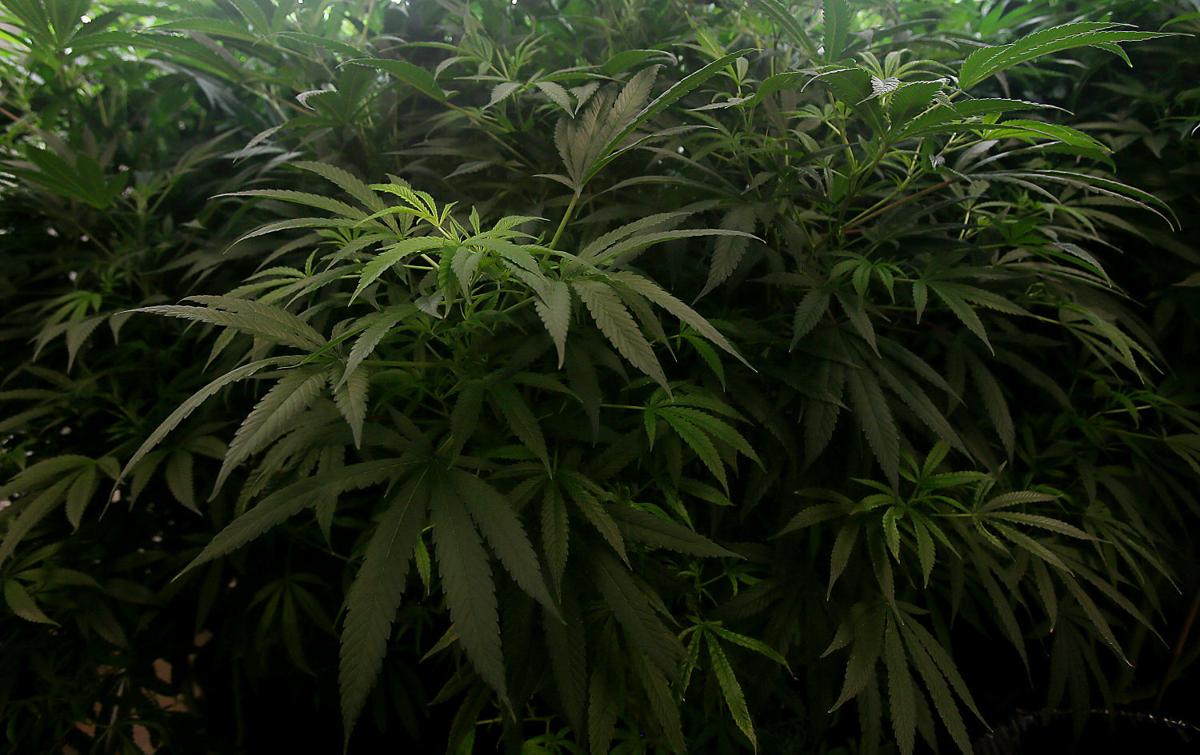PHOENIX т Attorney General Mark Brnovich is asking the УлшжжБВЅ Supreme Court to declare hashish possession a crime for medical-marijuana patients, but a former state health director says thatтs a misreading of the voter-approved law.
State-licensed dispensaries sell hashish and other products and edibles made with marijuana extracts, all apparently with the knowledge and approval of state health officials.
But in new court filings, Brnovich contends that the УлшжжБВЅ Medical Marijuana Act approved by voters in 2010 legalized only the use of the marijuana leaves and flowers, and preparations of them, by people who have a doctorтs recommendation to use the drug.
He said that while hashish is the resin of the marijuana plant, the act of separating it from the leaves and flowers makes it a substance thatтs not legal.
People are also reading…
Former state health director Will Humble, who wrote the rules when the medical marijuana law was adopted, said thatтs not how he reads the law. тTo me, itтs a plain reading of the words,т he said.
Humble said he and his staff wrote the health departmentтs rules for what can be sold at state-licensed dispensaries in consultation with the Attorney Generalтs Office. And at no time, he said, did any of the attorneys there say that extracts like hashish should be excluded.
Humble also noted that the health department, now under the direction of Cara Christ after he left in 2014, continues to allow the sale of edibles.
For example, the department has published recommendations for the safe practice of handling marijuana extracts and making edible products containing marijuana. It also offers a separate application for those who want to operate dispensary infusion kitchens.
Humble dismissed any suggestion that hashish is legally different than other marijuana extracts now used to make edible products. In both cases, he said, itтs a preparation.
тIt started with the marijuana flower and ended up with hashish,т he said.
Brnovich would not comment on the case, the outcome of which could determine if the only forms of marijuana that patients could purchase are flowers and leaves.
In a prepared statement, meanwhile, the health department said it has been monitoring developments in the pending lawsuit тand will comply with any decision of the УлшжжБВЅ Supreme Court.т
The 2010 law allows those with certain medical conditions and a doctorтs recommendation to obtain up to 2ТН ounces of marijuana every two weeks. Those conditions range from glaucoma and AIDS to post-traumatic stress disorder and severe and chronic pain.
At last count, more than 180,000 individuals had qualified as medical marijuana patients.
One of them was Rodney Jones, who in 2013 was found in possession of a jar containing 0.05 of an ounce of hashish. Prosecuted by the Yavapai County Attorneyтs Office, he was found guilty and sentenced to 2.5 years in prison for possession of a narcotic drug and a concurrent one-year term for drug paraphernalia тspecifically, the jar holding the hashish.
A divided state Court of Appeals sided with prosecutors, agreeing that hashish, essentially the resin of the cannabis plant, is legally not the same as the plant itself. The majority concluded the 2010 law makes it legal to possess only the plant, not the resin.
Now attorneys for Jones want the Supreme Court to conclude otherwise. That petition puts Brnovich, whose office handles criminal appeals, in the position of defending the conviction and the lower court rulings.
Much more than the conviction is at stake.
If separating an extract from the flowers and leaves makes the resulting product illegal, that, in turn, undermines not just hashish but also other oils and extracts that are used directly by patients, as well as those used to make things like candy bars and drinks, none of which contain the plantтs flowers or leaves once they are formulated.
Humble, who opposed the 2010 ballot measure, said thatтs not what voters intended.
Exhibit 1 is Zander Welton, a 5-year-old Mesa boy who got a doctorтs permission to use medical marijuana to treat his seizures.
His parents, Jacob and Jennifer, had been giving him a liquid tincture with marijuana extract until Maricopa County Attorney Bill Montgomery threatened to prosecute them and anyone who supplied the product. The couple then tried to get the boy to swallow applesauce with crushed marijuana leaves, a process that proved not only difficult but made it impossible to determine the correct dosage.
Maricopa County Superior Court Judge Katherine Cooper ruled in 2014 it made no sense to interpret the law that qualified patients could use medical marijuana, but only in one particular form.
тSuch an interpretation reduces, if not eliminates, medical marijuana as a treatment option for those who cannot take it in plant form, or could receive a greater benefit from an alternative form,т she wrote.
Humble is not alone in his view that extracts like hashish are legal for medical marijuana patients. Judge Kenton Jones, dissenting from the Court of Appeals ruling, wrote, тThe resin extracted from the marijuana plant т cannabis т is part of the plant ... just as sap is part of a tree.т



















